Related Research Articles
A drug cartel is a criminal organization composed of independent drug lords who collude with each other in order to improve their profits and dominate the illegal drug trade. Drug cartels form with the purpose of controlling the supply of the illegal drug trade and maintaining prices at a high level. The formations of drug cartels are common in Latin American countries. Rivalries between multiple drug cartels cause them to wage turf wars against each other.
A gangster is a criminal who is a member of a gang. Most gangs are considered to be part of organized crime. Gangsters are also called mobsters, a term derived from mob and the suffix -ster. Gangs provide a level of organization and resources that support much larger and more complex criminal transactions than an individual criminal could achieve. Gangsters have been active for many years in countries around the world. Gangsters are the subject of many novels, films, television series, and video games.
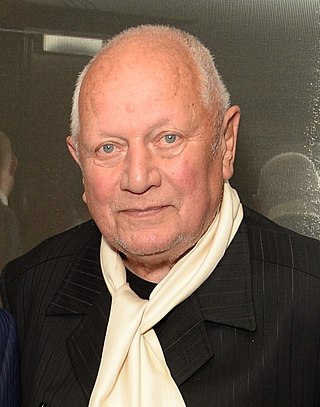
Steven Berkoff is an English actor, author, playwright, theatre practitioner and theatre director.

Carl Steven Alfred Chinn is an English historian, author and radio presenter whose working life has been devoted to the study and popularisation of the city of Birmingham. He broadcast a programme on the BBC from the mid-1990s focusing on Birmingham's history.
The Irish Mob is a usually crime family–based ethnic collective of organized crime syndicates composed of primarily ethnic Irish members which operate primarily in Ireland, the United States, the United Kingdom, Canada and Australia, and have been in existence since the early 19th century. Originating in Irish-American street gangs – famously first depicted in Herbert Asbury's 1927 book, The Gangs of New York – the Irish Mob has appeared in most major U.S. and Canadian cities, especially in the Northeast and the urban industrial Midwest, including Boston, New York City, Philadelphia, Pittsburgh, Baltimore, Cleveland, and Chicago.
Gang-related organised crime in the United Kingdom is concentrated around the cities of London, Manchester and Liverpool and regionally across the West Midlands region, south coast and northern England, according to the Serious Organised Crime Agency. With regard to street gangs the cities identified as having the most serious gang problems, which accounted for 65% of firearm homicides in England and Wales, were London, Birmingham, Manchester and Liverpool. Glasgow in Scotland also has a historical gang culture with the city having as many teenage gangs as London, which had six times the population, in 2008.

Jewish-American organized crime initially emerged within the American Jewish community during the late 19th and early 20th centuries. In media and popular culture, it has variously been referred to as the Jewish Mob, the Jewish Mafia, the Kosher Mob, the Kosher Mafia, the Yiddish Connection, and Kosher Nostra or Undzer Shtik. The last two of these terms are direct references to the Italian cosa nostra; the former is a play on the word for kosher, referring to Jewish dietary laws, while the latter is a calque of the Italian phrase 'cosa nostra' into Yiddish, which was at the time the predominant language of the Jewish diaspora in the United States.
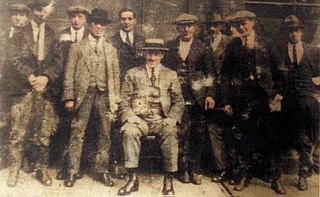
Charles "Darby" Sabini was a British-Italian mob boss and considered protector of Little Italy during the interwar years.
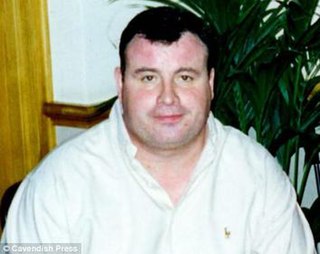
Desmond Patrick "Dessy" Noonan was an English organised crime figure from Manchester, who acted as a political fixer for the Noonan crime family. He and his younger brother, Dominic Noonan, were suspected by police of being responsible for at least 25 murders during their 20-year reign over Manchester's underworld.
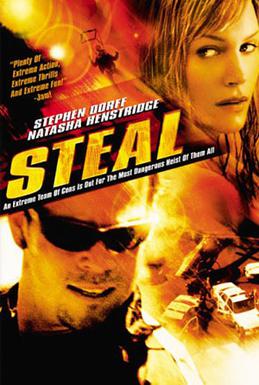
Steal is a 2002 action film directed by Gérard Pirès and starring Stephen Dorff, Natasha Henstridge, Bruce Payne, and Steven Berkoff. It was written by Mark Ezra and Pirès.

The Atlantic City Conference held between 13–16 May 1929 was a historic summit of leaders of organized crime in the United States. It is considered by most crime historians to be the earliest organized crime summit held in the US. The conference had a major impact on the future direction of the criminal underworld and it held more importance and significance than the Havana Conference of 1946 and the Apalachin meeting of 1957. It also represented the first concrete move toward a National Crime Syndicate.
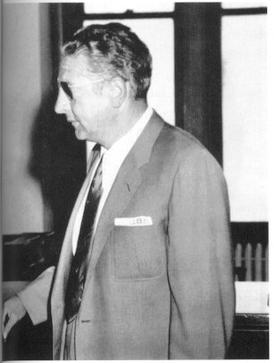
John T. Scalish, also known as "John Scalise", was an American mobster who became the boss of the Cleveland crime family. His death resulted in the ascension of James T. Licavoli to the head of the Cleveland Mob and to a bloody gang war that would essentially destroy the once-powerful crime family that Scalish had helped to develop.
The Birmingham Boys were a street gang whose power extended from the North of England to London's underworld, between the 1910s and 1930s. They lost control of the South East racecourses to the Sabini gang. In modern times they gained recognition due to the TV series Peaky Blinders.
The Yiddishers were a London street gang based in Whitechapel and were led by Alfred Solomon. One of their more famous members was future mobster Jack Spot during the inter-war years. During the 1930s, they opposed the growing fascist movement in Great Britain and participated in an attack on members of the British Union of Fascists led by Sir Oswald Mosley, later known as the Battle of Cable Street on 4 October 1936.
The Elephant and Castle Mob were one of the many independent street gangs active in London's underworld during the interwar years. A rival of mobster Charles "Darby" Sabini along with the Birmingham Boys and the Cortesi brothers of Saffron Hill, they were eventually forced out by Sabini with the added manpower of imported Sicilian mafiosi and had disappeared from the city by the end of the Second World War.

The Detroit Partnership is an Italian-American Mafia crime family based in Detroit, Michigan. The family mainly operates in Detroit and the Greater Detroit area, as well as in other locations including Windsor, Ontario; Toledo, Ohio; and Las Vegas.
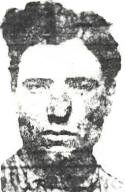
The Los Angeles crime family, also known as the Dragna crime family, the Southern California crime family or the L.A. Mafia, and dubbed "the Mickey Mouse Mafia" by former Los Angeles Police Chief Daryl Gates, is an Italian-American Mafia crime family based in Los Angeles, California as part of the larger Italian-American Mafia. Since its inception in the early 20th century, the family has spread throughout Southern California. Like most Mafia families in the United States, the Los Angeles crime family gained wealth and power through bootlegging alcohol during the Prohibition era. The L.A. family reached its peak strength in the 1940s and early 1950s under Jack Dragna, although the family was never larger than the New York or Chicago families. The Los Angeles crime family itself has been on a gradual decline, with the Chicago Outfit representing them on The Commission since the death of boss Jack Dragna in 1956.
The Trafficante crime family, also known as the Tampa crime family or the Tampa Mafia, is an Italian-American Mafia crime family based in Tampa, Florida. The most notable boss of the family was Santo Trafficante Jr. who ruled Tampa and the crime family with an iron fist. Author Scott Deitche reported that Santo Jr. was involved with the CIA to plot assassination attempts on Fidel Castro. After the death of Santo Jr. in 1987, the Tampa Mafia family has been controlled by Vincent LoScalzo.
The Company, also called the Hawaiian Syndicate, is the name given to an organized crime syndicate based in Hawaii that controlled criminal activities in the state from the late 1960s to the mid-1990s.
References
- ↑ Shore, Heather (2001). "Undiscovered Country': Towards A History Of The Criminal 'Underworld'". School of Cultural Studies: Leeds Metropolitan University. Archived from the original (.doc) on 29 September 2007. Retrieved 6 December 2006.
- ↑ Jones, Thomas L. (2003). "The Kray Twins: Brothers in Arms". Crime Library. Archived from the original on 31 December 2006. Retrieved 31 December 2006.
- ↑ Underwood, Eric. Brighton. London: B. T. Batsford, 1978. ISBN 0-7134-0895-2
- ↑ Cross, Robert. Steven Berkoff and the Theatre of Self-Performance. Manchester: Manchester University Press, 2004. ISBN 0-7190-6254-3